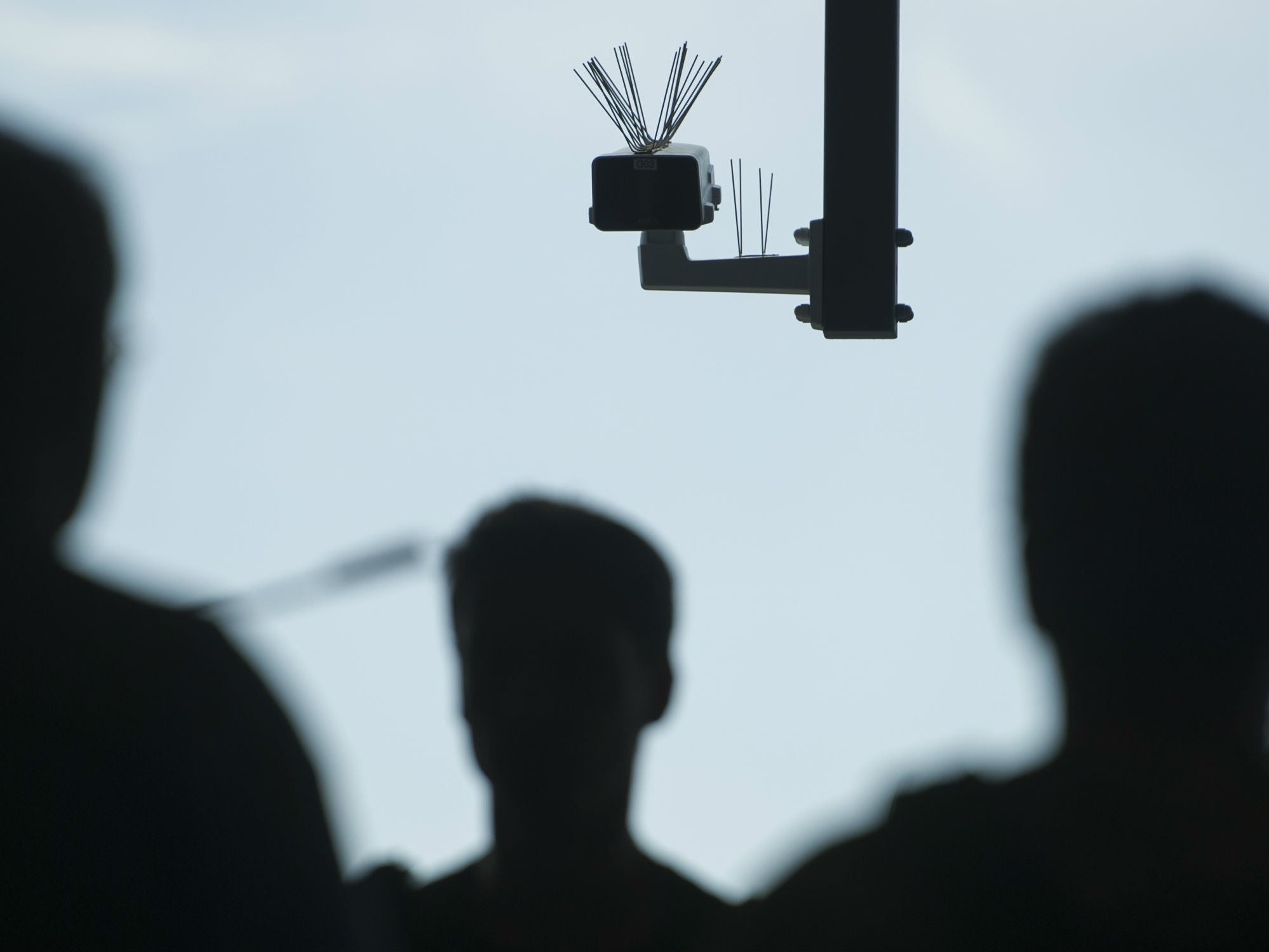The Independent's journalism is supported by our readers. When you purchase through links on our site, we may earn commission.
IBM will no longer develop facial recognition technology following George Floyd protests
'We believe now is the time to begin a national dialogue on whether and how facial recognition technology should be employed by domestic law enforcement agencies,' CEO writes in letter to congress

Your support helps us to tell the story
From reproductive rights to climate change to Big Tech, The Independent is on the ground when the story is developing. Whether it's investigating the financials of Elon Musk's pro-Trump PAC or producing our latest documentary, 'The A Word', which shines a light on the American women fighting for reproductive rights, we know how important it is to parse out the facts from the messaging.
At such a critical moment in US history, we need reporters on the ground. Your donation allows us to keep sending journalists to speak to both sides of the story.
The Independent is trusted by Americans across the entire political spectrum. And unlike many other quality news outlets, we choose not to lock Americans out of our reporting and analysis with paywalls. We believe quality journalism should be available to everyone, paid for by those who can afford it.
Your support makes all the difference.IBM will no longer develop technology for facial recognition following protests against racial inequality in the US and UK.
In a letter to congress, IBM CEO Arvind Krishna said that the company “no longer offers general purpose IBM facial recognition or analysis software.”
“IBM firmly opposes and will not condone uses of any technology, including facial recognition technology offered by other vendors, for mass surveillance, racial profiling, violations of basic human rights and freedoms, or any purpose which is not consistent with our values and Principles of Trust and Transparency."
"We believe now is the time to begin a national dialogue on whether and how facial recognition technology should be employed by domestic law enforcement agencies,” the letter states.
Mr Krishna also recommended that police should be more accountable for their misconduct, and expanding opportunities in communities of colour for “new collar” jobs – those which require specialised skills but do not require the traditional university degree, such as cybersecurity and cloud computing, both of which IBM develops.
Facial recognition software has been often criticised on both privacy grounds – in that it increases the UK’s already large surveillance state – but also because the software disproportionately misidentifies people of colour.
At the start of the year, the government was warned of the technology’s penchant for “false positives”, which are alerts which flag innocent people as criminals but that has not stopped it being continually used in cities such as London.
Trials carried out between 2016 and 2018 wrongly identified members of the public as criminals 96 per cent of the time, yet these systems can be deployed sometimes with only two hours notice, which infringes on the informed consent of the people being surveiled.
IBM itself has also been criticised in the past for how it has developed its facial recognition systems. Last year, the company released a collection of nearly one million photos taken from Flickr which were used to train its algorithm.
However, IBM had not informed those photographed that their images were being “annotated with details including facial geometry and skin tone”, with Meredith Whittaker, co-director of the AI Now Institute, saying at the time that such an action infringed people’s privacy in order “[train] systems that could potentially be used in oppressive ways against their communities.”
IBM is not the only company recently criticised for its use of facial recognition. Amazon, which has made statements in support of the Black Lives Matter movement, continues to manufacture and pitch facial recognition software to law enforcement and as such has been denounced for making “empty statements”.
Join our commenting forum
Join thought-provoking conversations, follow other Independent readers and see their replies
Comments